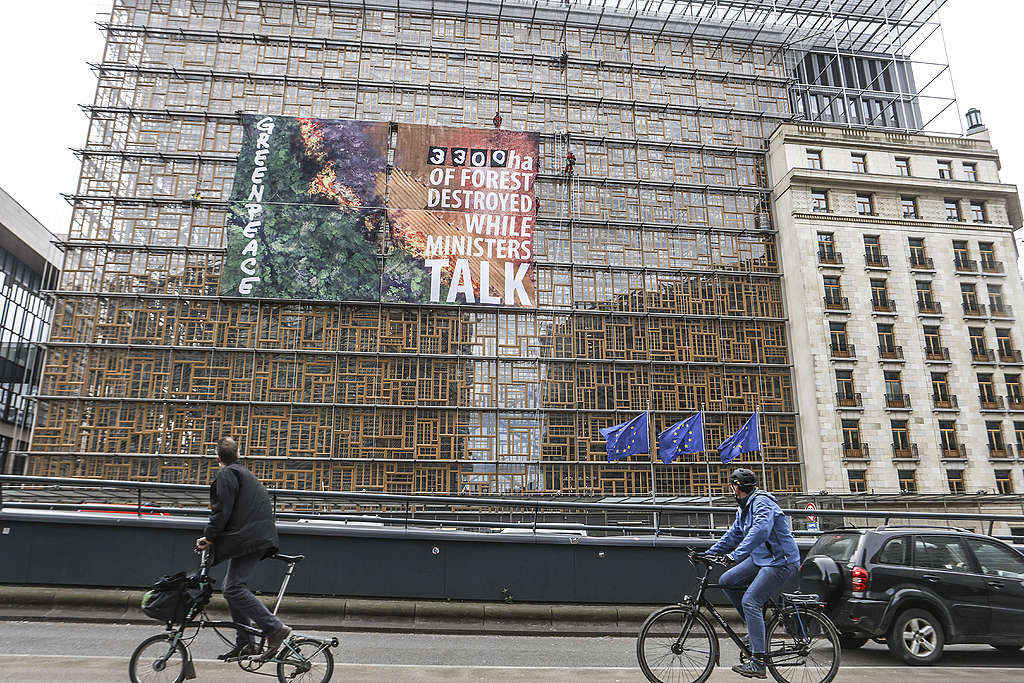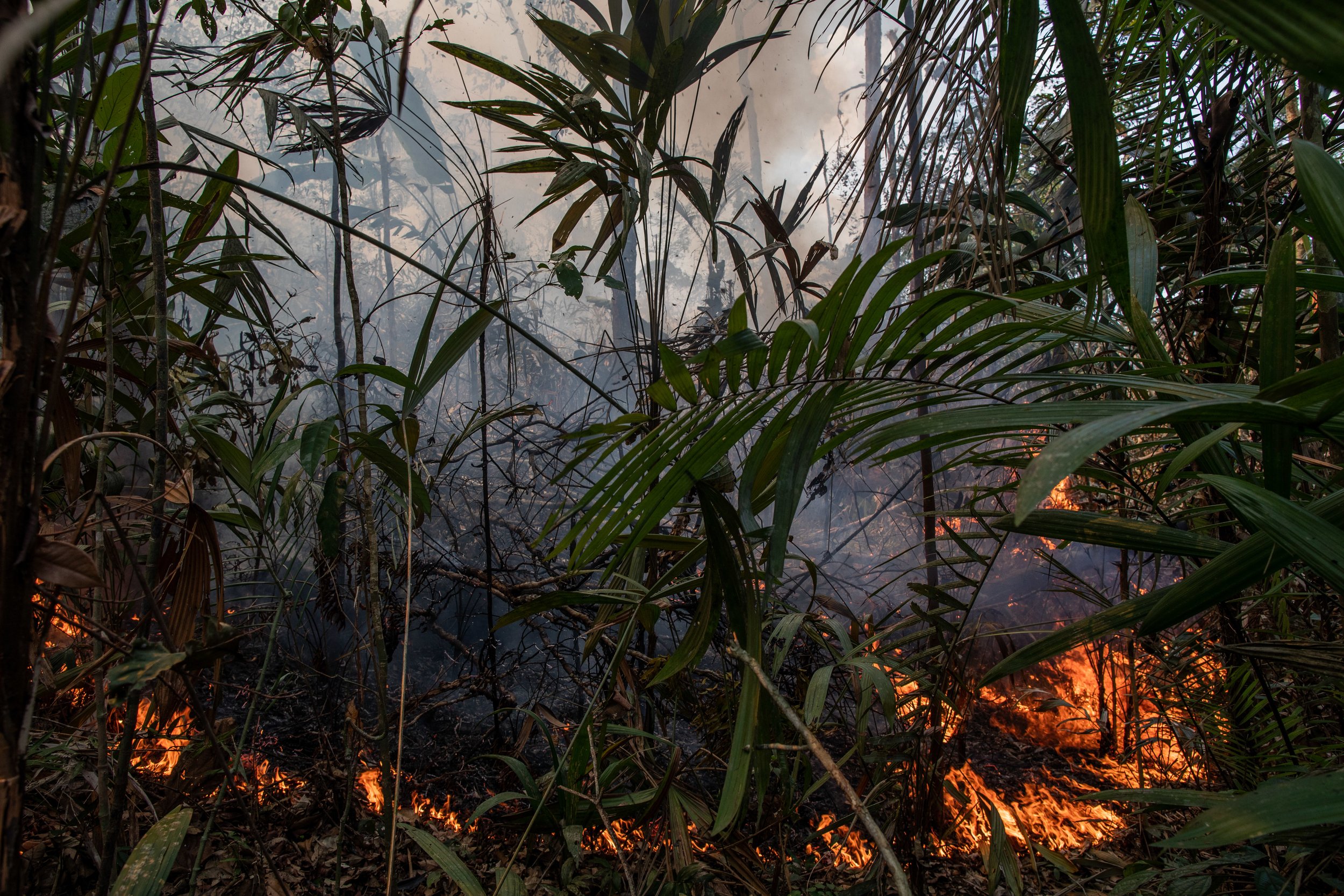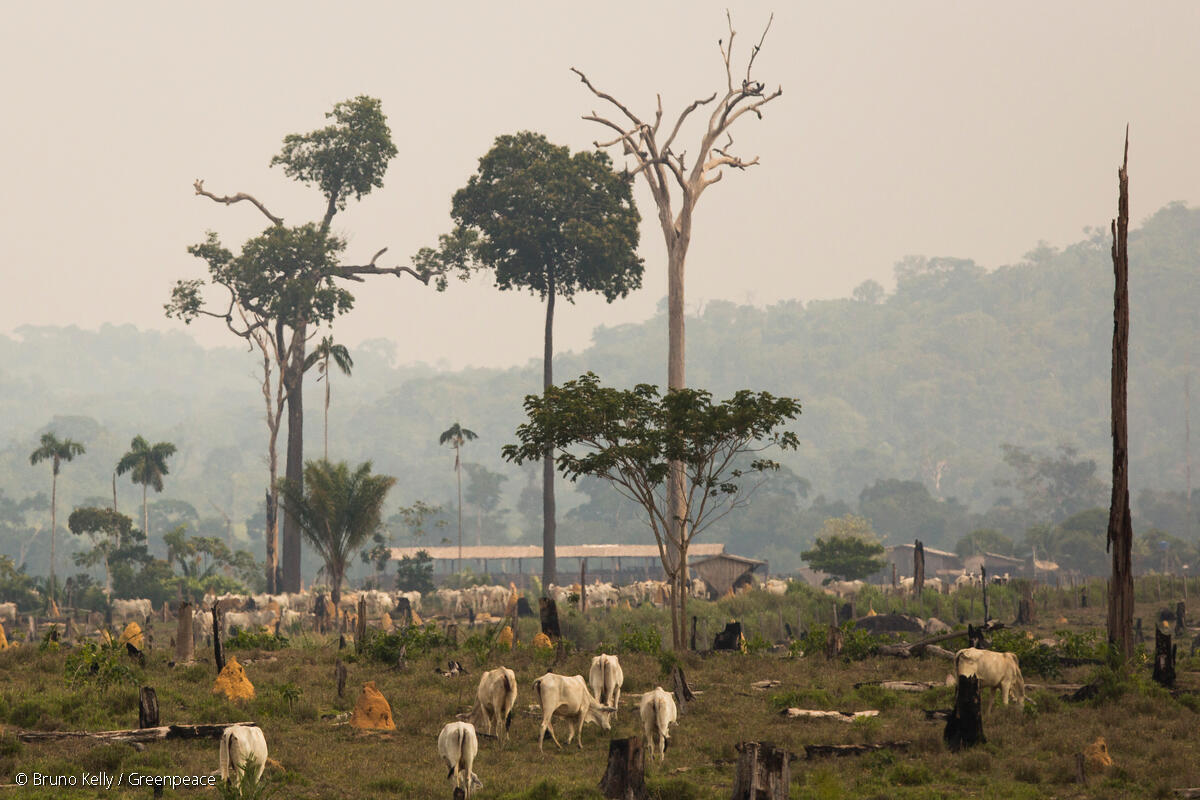Brussels – European environment ministers have severely weakened the upcoming EU law to protect the world’s forests from European consumption, according to Greenpeace. The ministers’ proposed changes to the draft law that would allow the continued sale of products that have severely degraded forests, and would also allow the sale of wood, pulp and paper products that have driven the complete deforestation of areas.

Logging industry lobbyists, particularly in the Nordic countries, have pushed back against restrictions on products from degraded forests. Degraded forests, although not completely destroyed, can store much less carbon and support less wildlife than healthy forests, and may even die entirely.
Greenpeace EU forest campaign lead Sini Eräjää said: “Ministers have taken a chainsaw to the law that’s supposed to keep products linked to nature destruction out of our shops and off our plates. By bowing to the pressure from logging companies and their governments, they would leave the door open to products that come at the expense of damaged forests and introduce a loophole for wood from clear-cut forests in Europe and around the world. With temperatures soaring and forest fires raging, we can’t afford to weaken this essential line of defence against the climate crisis.”
Ministers backed a new definition for “forest degradation” that would only apply to the conversion of primary forests, which make up an extremely small percentage of Europe’s forests, into plantation forests. This would leave the vast majority of forests in the EU unprotected and allow the continuation of many harmful forestry practices. Combined with the law’s definition of “deforestation”, which only applies to the conversion of forests to agricultural land, this narrow definition of “degradation” could also leave the EU market open to products like wood and paper that come from destroyed forests, including primary forests, before they are formally converted to tree plantations or farmland.
The environment ministers proposed no changes to the types of ecosystems that the law would seek to protect, nor to the list of commodities that the law would be applied to. Greenpeace has criticised the draft law for leaving threatened ecosystems like savannahs, wetlands and peatlands unprotected, and for ignoring products and commodities linked to nature destruction, such as rubber, maize, poultry and pork.
Next steps
The lead committee dealing with this proposed law in the European Parliament, the environment committee, will vote on its amendments to the proposal on 11 or 12 July. The Parliament is expected to finalise its position in September, after which three-way negotiations on the final law will begin between the EU Commission, Parliament and national governments.
Contacts:
Sini Eräjää, Greenpeace EU forest campaign lead: +32 476 975 960, [email protected]
Greenpeace EU press desk: +32 (0)2 274 1911, [email protected]
For breaking news and comment on EU affairs: www.twitter.com/GreenpeaceEU
Greenpeace is an independent global campaigning network that acts to change attitudes and behaviour, to protect and conserve the environment and to promote peace. We do not accept donations from governments, the EU, businesses or political parties. Greenpeace has over three million supporters, and 26 independent national and regional organisations with offices in more than 55 countries.
EU Transparency Register: 9832909575-41



